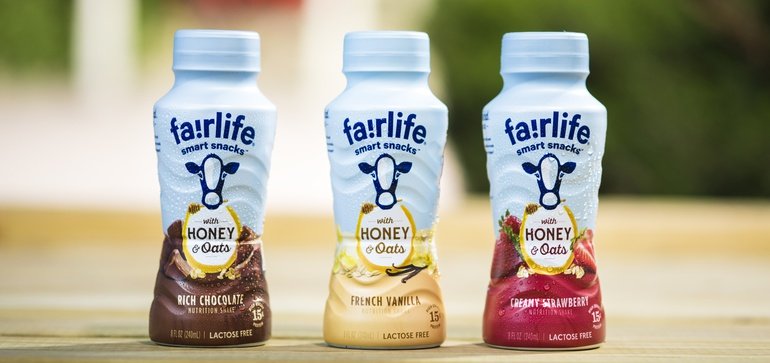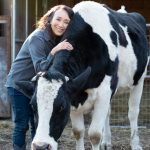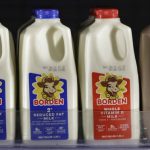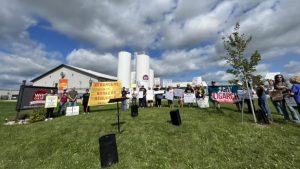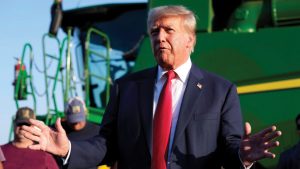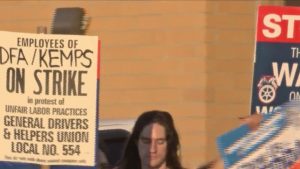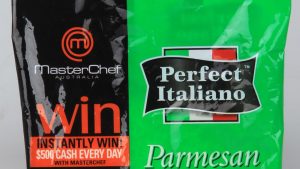
Dive Brief:
Fairlife, which launched in 2012, started with its Core Power product, a high-protein milk shake, and has since expanded into a wide portfolio of value-added dairy products. Fairlife will continue to operate as a stand-alone business based in Chicago.
Coca-Cola North America President Jim Dinkins said in a Q&A published by the company that Fairlife “plays an important part in our strategy to continue growing as a total beverage company as we innovate to bring people more new products that meet their changing lifestyles and needs.”
Dive Insight:
Under the tenure of Coca-Cola’s CEO James Quincey, the beverage giant has been moving aggressively to diversify the company’s portfolio beyond its iconic sodas. It’s decision to fully acquire Fairlife is the latest step in that ongoing process. Despite facing challenges with the brand’s reputation in 2019, value-added dairy has been a growing sector in the U.S. and one that could help Coca-Cola going forward.
Fairlife’s ultra-filtered milk, a higher-protein and lower-lactose product, debuted in 2014. Sales have grown by double digits each year, including 42% in the first quarter of 2019. Fairlife reached more than $500 million in retail sales last year, according to Nielsen AMC figures provided by Coca-Cola, so it makes sense that Coke would want to wholly own this brand.
The dairy industry has been struggling with two major dairy processors — Dean Foods and Borden Dairy — filing for bankruptcy. But one bright spot has been innovation, with value-added options and their high margins attractive to companies. Organic Valley debuted an ultra-filtered milk last year and Horizon Organic offers its own high protein milk line to compete with Fairlife. Other products such as New Zealand’s a2 Milk, whose product lacks a protein that can cause stomach discomfort, also challenge Fairlife.
Coca-Cola has faced challenges with the high-protein brand in the past. Most recently, undercover videos of animal abuse taken at a Fairlife supplier dairy in Indiana were released by an animal welfare group. As a result, Coca-Cola and Fairlife faced a flurry of lawsuits accusing the companies of consumer fraud and deceptive marketing. Although Dinkins said in the Q&A that Coke was impressed by the quick action Fairlife took to address the situation, this incident could have influenced the soda giant’s decision to buy out the company all together in order to ensure nothing similar happens again.
“Everyone at Coca-Cola was shocked and heartbroken to hear of the incident last summer. That’s why it was important to our team that we be highly involved…,” Dinkins said. “Since then, we’ve been working with Fairlife to ensure their supply chain has the strongest possible policies and practices to assure animal welfare and worker care.”
Fairlife has expanded its offerings in recent years, growing from its filtered milks to high-protein recovery and nutrition shakes and drinkable snacks. Fairlife has already benefited from Coca-Cola’s reach, with its products distributed through the Minute Maid distribution system and Coca-Cola bottlers across the U.S.
Growth will likely continue to be a major goal of the brand when the acquisition closes. In 2018, Fairlife launched in Canada and the company is continuing to expand its production in the U.S. Fairlife already has production facilities in Michigan and Texas, and it is working to build a new facility in Arizona. Although the brand will still operate as a standalone business, building another facility expands its reach and its potential to grow.
This purchase makes sense for Coca-Cola because the company is working to become a “total beverage company” through acquisitions. Coca-Cola has acquired brands in a variety of growing, trendy categories, such as Honest Tea, Topo Chico sparking mineral water, Suja Juice, Zico coconut water and Costa Coffee. Coca-Cola’s growth strategy, fueled in part by a move toward better-for-you beverages, is unlikely to end anytime soon.
